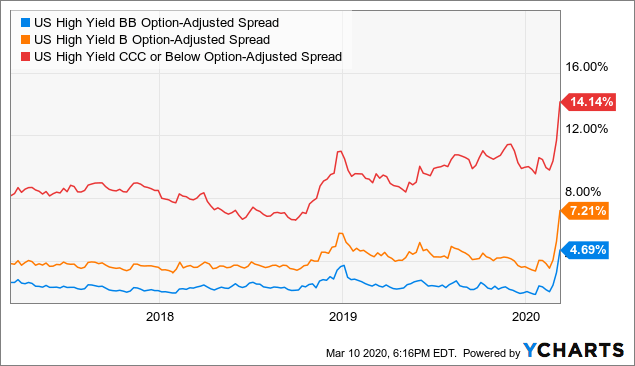
It can be challenging to pick the best companies to invest your money in. You need to know the industry well and have a clear goal. The best companies to invest are those that have the greatest potential for long-term growth. These companies have been known to outperform their industry counterparts and have the potential to yield massive returns.
There are thousands upon thousands of publicly listed companies, as well as many exchange-traded fund options. You should be aware of the most notable features of each company before making an investment. It is important to avoid investing in companies that are unfamiliar or difficult to understand.
Companies that are at the forefront of the industry are the best to invest in. They are usually the first to use new technologies, such as artificial intelligence (AI), and are a leader in research and development. These companies generally have the largest market capital and are considered safe havens. These companies are great places to start if your first time investing.

The best companies to invest in are also the ones with the most potential for long-term revenue growth. This is because technology companies tend to focus on the latest technologies. The best companies that you can invest in will be those with high rates for revenue growth even in times of economic downturn. Some companies are known for being experts in certain areas, such the blockchain technology. They are also likely have a lower debt to equity ratio which makes them a better long-term investment.
There are many businesses to choose from. The best companies to invest is usually the ones that have the most innovative product or service. If you are interested in the company's operations, it should be easy for you to gauge. You can also choose from a variety of mutual funds or exchange-traded investments.
There are many other metrics you should consider. Other metrics include the market size, notable features, or the P/E rate. A company with less than 0.3 P/E is considered low risk. A P/E ratio greater than 12 is considered high-risk. Lower P/E ratios are a good way of lowering your risk.
You will find the most profitable companies to invest in with clever marketing strategies. One example is that a company may have a product/service that is most valuable in terms of the ROI (Returns on Investment). This refers to how much money the company will earn over a specific time period. The company may have a new product or service, or it may be partnering with another company to make a big splash.

A high market capital will make a company a good investment choice. This is an important metric as large companies have the potential to manipulate financial markets. Large companies can make or break an investment. It is also a smart way to minimize the risks associated with investing in unknown companies.
FAQ
What is the difference between the securities market and the stock market?
The securities market refers to the entire set of companies listed on an exchange for trading shares. This includes stocks, bonds, options, futures contracts, and other financial instruments. There are two types of stock markets: primary and secondary. Large exchanges like the NYSE (New York Stock Exchange), or NASDAQ (National Association of Securities Dealers Automated Quotations), are primary stock markets. Secondary stock markets are smaller exchanges where investors trade privately. These include OTC Bulletin Board Over-the-Counter (Pink Sheets) and Nasdaq ShortCap Market.
Stock markets are important for their ability to allow individuals to purchase and sell shares of businesses. The value of shares depends on their price. A company issues new shares to the public whenever it goes public. Dividends are paid to investors who buy these shares. Dividends are payments that a corporation makes to shareholders.
Stock markets provide buyers and sellers with a platform, as well as being a means of corporate governance. Boards of Directors are elected by shareholders and oversee management. They ensure managers adhere to ethical business practices. If a board fails in this function, the government might step in to replace the board.
What Is a Stock Exchange?
A stock exchange is where companies go to sell shares of their company. Investors can buy shares of the company through this stock exchange. The market sets the price for a share. It usually depends on the amount of money people are willing and able to pay for the company.
Companies can also get money from investors via the stock exchange. Companies can get money from investors to grow. They do this by buying shares in the company. Companies use their money in order to finance their projects and grow their business.
A stock exchange can have many different types of shares. Some are called ordinary shares. These are the most common type of shares. Ordinary shares can be traded on the open markets. Prices of shares are determined based on supply and demande.
Preferred shares and debt security are two other types of shares. When dividends are paid, preferred shares have priority over all other shares. If a company issues bonds, they must repay them.
Are bonds tradeable?
Yes they are. As shares, bonds can also be traded on exchanges. They have been traded on exchanges for many years.
They are different in that you can't buy bonds directly from the issuer. You will need to go through a broker to purchase them.
This makes it easier to purchase bonds as there are fewer intermediaries. This means that you will have to find someone who is willing to buy your bond.
There are many types of bonds. Some bonds pay interest at regular intervals and others do not.
Some pay interest quarterly while others pay an annual rate. These differences make it possible to compare bonds.
Bonds are great for investing. If you put PS10,000 into a savings account, you'd earn 0.75% per year. If you invested this same amount in a 10-year government bond, you would receive 12.5% interest per year.
If you put all these investments into one portfolio, then your total return over ten-years would be higher using bond investment.
What is a REIT?
A real estate investment trust (REIT) is an entity that owns income-producing properties such as apartment buildings, shopping centers, office buildings, hotels, industrial parks, etc. These are publicly traded companies that pay dividends instead of corporate taxes to shareholders.
They are similar in nature to corporations except that they do not own any goods but property.
What is a bond?
A bond agreement is a contract between two parties that allows money to be transferred for goods or services. It is also known as a contract.
A bond is usually written on a piece of paper and signed by both sides. The document contains details such as the date, amount owed, interest rate, etc.
The bond is used for risks such as the possibility of a business failing or someone breaking a promise.
Many bonds are used in conjunction with mortgages and other types of loans. This means that the borrower must pay back the loan plus any interest payments.
Bonds can also raise money to finance large projects like the building of bridges and roads or hospitals.
When a bond matures, it becomes due. When a bond matures, the owner receives the principal amount and any interest.
If a bond does not get paid back, then the lender loses its money.
Statistics
- The S&P 500 has grown about 10.5% per year since its establishment in the 1920s. (investopedia.com)
- Ratchet down that 10% if you don't yet have a healthy emergency fund and 10% to 15% of your income funneled into a retirement savings account. (nerdwallet.com)
- "If all of your money's in one stock, you could potentially lose 50% of it overnight," Moore says. (nerdwallet.com)
- Our focus on Main Street investors reflects the fact that American households own $38 trillion worth of equities, more than 59 percent of the U.S. equity market either directly or indirectly through mutual funds, retirement accounts, and other investments. (sec.gov)
External Links
How To
How to Trade on the Stock Market
Stock trading can be described as the buying and selling of stocks, bonds or commodities, currency, derivatives, or other assets. The word "trading" comes from the French term traiteur (someone who buys and sells). Traders purchase and sell securities in order make money from the difference between what is paid and what they get. This type of investment is the oldest.
There are many ways you can invest in the stock exchange. There are three basic types: active, passive and hybrid. Passive investors are passive investors and watch their investments grow. Actively traded investor look for profitable companies and try to profit from them. Hybrids combine the best of both approaches.
Passive investing is done through index funds that track broad indices like the S&P 500 or Dow Jones Industrial Average, etc. This method is popular as it offers diversification and minimizes risk. You can simply relax and let the investments work for yourself.
Active investing involves picking specific companies and analyzing their performance. Active investors will analyze things like earnings growth rates, return on equity and debt ratios. They also consider cash flow, book, dividend payouts, management teams, share price history, as well as the potential for future growth. They will then decide whether or no to buy shares in the company. If they feel that the company's value is low, they will buy shares hoping that it goes up. They will wait for the price of the stock to fall if they believe the company has too much value.
Hybrid investing combines some aspects of both passive and active investing. For example, you might want to choose a fund that tracks many stocks, but you also want to choose several companies yourself. In this scenario, part of your portfolio would be put into a passively-managed fund, while the other part would go into a collection actively managed funds.